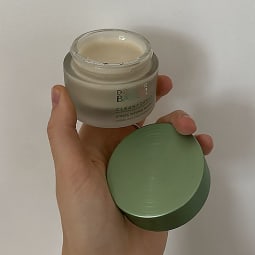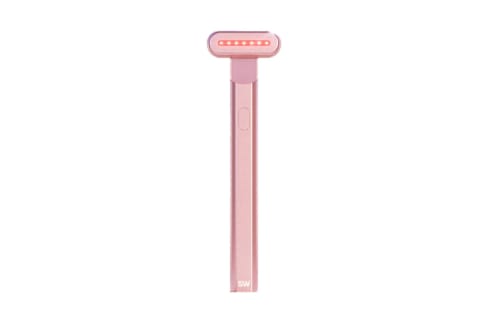We’ll go ahead and assume you’re familiar with oats’ benefits for skin. (And if you need a brief refresher, take a peek over here.) Given their skin-soothing properties—plus the fact that oats have remained a top remedy for thousands of years—perhaps you seek out oat extract when shopping for skin care products; maybe you’ve even slathered on your own DIY oatmeal face mask or slipped into an oatmeal soak.
In case you couldn’t tell, there are more than a few ways to take advantage of this super ingredient. Here’s another: Ever tried oat oil? Derms are big (huge!) fans, as the oil itself has some special benefits for dry, sensitive skin.
Why derms love oat oil for dry skin.
First, let’s discuss what makes oat oil different from regular oat extract: “The lipid component of colloidal oatmeal is oat oil,” says board-certified dermatologist Hadley King, M.D., about the ingredient. The actual oil is extracted from the highly nutritious seed kernels of the Avena sativa or oat plant. This substance has a remarkably high lipid content—specifically linoleic acid, which helps regulate and promote healthy functioning of the skin barrier,” adds board-certified dermatologist Tiffany Jow Libby, M.D.
Essentially, by extracting the nutrient-rich oil, you’re getting the most out of its fatty acid content, which can help strengthen your lipid barrier. Oat oil has even been known to boost ceramide levels in the skin, which helps keep skin cells together (which, in turn, helps fortify the barrier). And when the skin barrier is functioning at its best, the skin is better able to retain moisture levels, and that makes your skin appear smooth, supple, and very, very happy.
So that’s what makes oat oil so special—but let’s not forget, colloidal oat itself has incredible benefits for the skin, and oat oil retains those same properties. Namely, the ingredient is chock-full of vitamin E, avenanthramides (an active in oats that has major anti-inflammatory benefits), and ferulic acid—these antioxidants are top-notch for reducing itch and inflammation.
As Libby declares, “Oat has direct anti-inflammatory effects on the skin and has been a centuries-old topical treatment for a variety of skin conditions. It also can soothe itch and help to reduce redness.” Those with sensitive skin typically deal with these woes due to a compromised skin barrier; oat oil can not only soothe those flares in the moment but also, as noted, help strengthen the skin barrier over time.
OK, so you’re sold on oat oil. How do you use the anti-inflammatory liquid gold? Typically, you can find it in facial or hair oils (since oat oil is also A+ for dry strands), but we suggest seeking a high-quality body lotion with this star ingredient as well.
You see, oat oil makes for a deliciously creamy moisturizer, especially when paired with other skin-conditioning agents, like coconut oil, shea butter, and moringa seed oil. And because a body lotion covers so much surface area, you can really get the biggest bang for your buck. Think smooth, hydrated, soft skin all over.
Slather on a rich lotion (like ours!) on damp skin right after a shower, and you’ll feel instantly soothed as it melts upon application. Imagine getting all the benefits of an anti-inflammatory oatmeal bath, just outside of the tub.
Oats are a famed skin care ingredient for a reason: They are brimming with antioxidant, anti-inflammatory, and moisturizing properties. Oat oil is especially perfect for dry and sensitive skin types, as the supercharged lipid content can help strengthen the moisture barrier and keep all that precious hydration in the skin, right where you want it.







